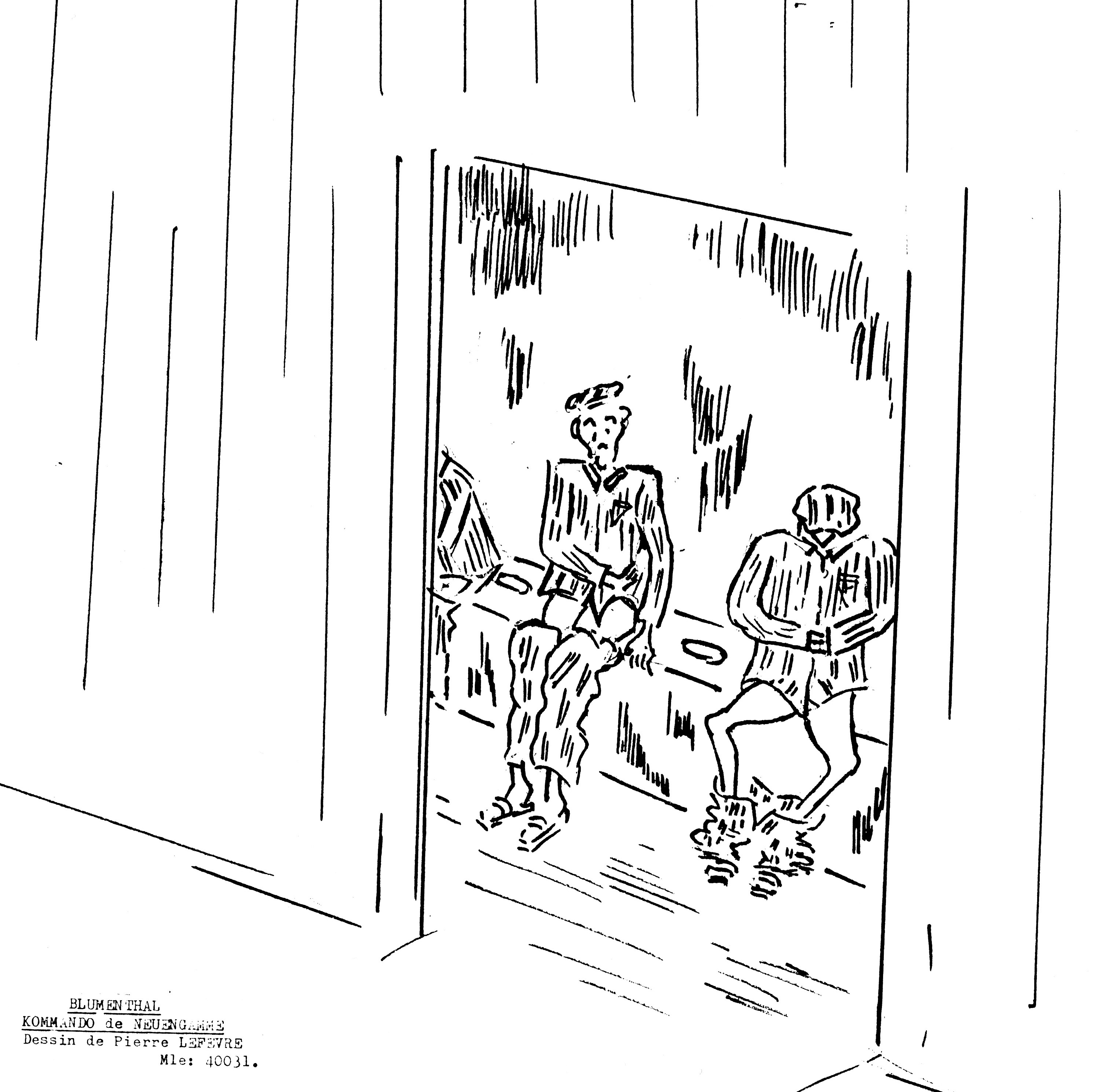Everyday Life : working and dying in Neuengamme
Night in the block
“At night there is hardly any air and more than 500 men sleep in a smell of urine and wet clothes. In this sleepy crowd, some dream out loud, others argue about it. Sleep is one of the last bastions where man can belong to himself. Before you go to sleep, you want to think about your family, imagine your return home. The haunting hunger draws images of white bread that sometimes have a fugitive priority on the beloved faces. This internal cinema does not last long, wearyness makes you quickly fall asleep despite the inconvenient position, the horrible crowding, the neighbor’s feet under the nose. The fight against night rest is methodically organized by the SS. These moments of relative relaxation are short-lived. The alarm usually rings around midnight and it’s the compulsary rush towards cellars under flogging and blows of boards”.
Louis Maury, Quand la haine élève ses temples, Imp. Gutenberg. Louviers, 1950
Gross Alarm
“We were neighbours to Hamburg, which the RAF bombed almost every night; in addition, the English planes crossed the sky to sink further on into the country.
Every time a flight was reported 40 kilometers away, the Voralarm rang. All the lights went out.
Then we had to dress in total darkness, without leaving one’s straw mattress and wait, with the anguish of what would follow and which
we knew only too well. […] Usually, after this brief curtain lift which seemed to us endless, the hooter of the Gross Alarm was tearing silence.
We would get up in haste, and rush into the cellars. Often the big Alarm whistled without warning. It was the worst: because then
we had to dress up in a hurry. The Stubedienst, in the dark, screamed and hit at random, on the straw mattresses where the clumsy ones lingered.
It seemed that night increased their ferocity.”
Louis Martin-ChauffieR, L’Homme et la bête, Gallimard, Paris, 1947
Alarms
“This small building […] had basements equipped as safety vaults with iron gates and it is in these cellars that forced laborers of the great hall were taken during the alarms. It For the Germans, the question was less to protect us, which they did not care at all, than to put us under lock and key to prevent escapes, while posten and SS shut themselves up in bunkers”.
.”Emile Janvier, Retour, Imp. Alençonnaise, Alençon, 1952.

Drauwing of Pierre LEVEVRE (Mle 40031)
A Sunday in the latrine
“There is a place where our torturers do not come and bother us : the latrines, where we meet to confront the news that we draw at random from the working Kommandos. Sitting side by side on about twenty wooden holes, regularly washed with lime chloride, we hold the “Closet Council“. This easy joke has the knack of cheering us up. Standing, against our knees, other initiates pretending to wait their turn take part in the conversation. For fear of sneaking from a foreigner, French and Belgians speak aloud, in a slang often incomprehensible”
Louis Maury, Quand la haine élève ses temples, Imp. Gutenberg. Louviers, 1950
Plan …
“Theft was so natural that the word was never used. The verb” to organize “was however widely used and translated into all languages.
” To organize “was to appropriate something for one’s own benefit, or that of some work we were interested in. […]
Another expression of French origin had been adopted, especially by the Russians and the Polishes: “do like this, like that”.
When we asked one of them how he got this thing, he often said, “I got it, like this, like this.”
Marcel PRENANT, Toute une vie à gauche, Encre éditions, Paris, 1980.